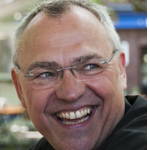Editorial Team
 Joachim Funke, Heidelberg University, Germany
Joachim Funke, Heidelberg University, Germany
Department of Psychology, Heidelberg University
funke@uni-hd.de / +49 6221-547305
Professor Dr. Dr. h.c. Joachim Funke holds the chair for cognitive, theoretical, and experimental psychology at the Department of Psychology at the University of Heidelberg, Germany, from 1997 until 2019. He holds a Ph.D. in cognitive psychology from the University of Trier. Funke has been a visiting professor at various universities, including Fribourg (Switzerland), Melbourne (Australia), Nanjing (China), and Szeged (Hungary). He retired in April 2019. His primary research interests are in the areas of thinking, problem-solving, and creativity. He is one of the proponents of the approach to capture complex problem-solving activities using computer-simulated scenarios. His research ideas have been financially supported by the German Research Foundation, federal ministries, and the European Union, among others. Funke has published numerous articles in international journals, contributed chapters to textbooks, and has edited and published his own books. From 2010 to 2014 he was chairman of the International Expert Commission on Problem Solving in the context of the OECD's global PISA studies. It is due to him that there has been a change in the understanding of problem-solving, shifting the perspective from static to dynamic problem-solving activities. In 2015 he was awarded an honorary doctorate by the Hungarian University of Szeged for his services to the computer-based recording of problem-solving processes. From 2011 to 2019, Funke was a spokesman for the Academic Senate of the University.
Prof. Dr. Michael Wink, Heidelberg University, Germany,has headed the Department of Biology at the Institute of Pharmacy and Molecular Biotechnology at Heidelberg University since 1999. After studying biology and chemistry at the University of Bonn, he conducted research in Braunschweig, Cologne, Munich, and Mainz. His research areas range from phytochemistry, medicinal and toxic plants to systematics, phylogenetics, and evolutionary research. He is author/co-author of more than 20 books and over 700 original papers, a member of various scientific advisory boards, editor of several journals, and recipient of several awards. For more than 20 years in total, he was dean, vice-dean, or dean of studies in the Faculty of Pharmacy (until 2001) and Life Sciences (from 2002) at Heidelberg University.

